Profundity is a word grossly overused. The word profundity might not get a ton of air time, but many are quick to casually call something profound. Profundity is defined as a deep insight or great depth of knowledge or thought. It’s easy in our fast-moving world to keep things superficial or skim the surface. But to truly succeed, both in marketing and in life, we must find what deeply resonates. We ultimately want our business to connect with something universal. After all, that’s the best way to convert new customers and clients as my guest, Rich Schefren, eloquently reminds us, you have more prospects than you have customers.
You don’t get a reputation like “The Guru of Gurus” without having some pretty deep insight. I’m super grateful Rich shares some of his great depth of knowledge and thought with us. I first got to know of Rich many years ago from one of his YouTube videos, where he explained his unique speed reading style. In this episode, he explains how he figuratively and sometimes literally breaks down books to their most important parts. Clearly, his systems are working for him. He’s personally added over $15 billion of additional revenue to his clients over the course of the many years he’s been in business. And he’s been featured on media outlets like the Wall Street Journal, Newsweek, ABC, NBC, Fox, MSNBC, the Discovery Channel, Daily News, New York Post, and many others. In this episode, we cover everything from writing compelling copy to working efficiently.
Rich provides profound pearls of wisdom that stay with you, such as “that which is most personal is most general.” And as Rich shares his personal journey, the books that he finds most helpful in business and in life, he provides advice that can appeal to anyone. This episode is not to be missed. Now on with the show.
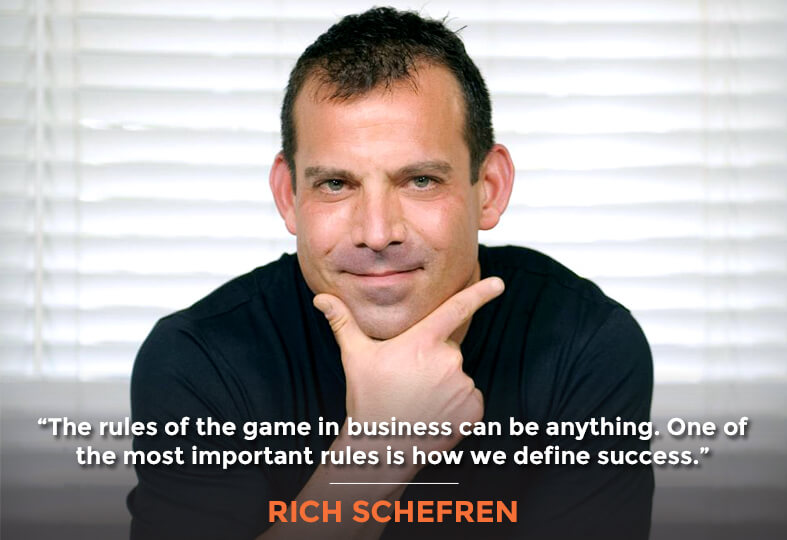
Transcript
Rich, it’s so great to have you on the show. What are some of these strategies as a high-performance strategic coach for these online marketers and business leaders? What are the things that you’re teaching them that transforms them?
Everybody presents a different scenario, but I guess one of the common themes you could say for a lot of my work that I think is somewhat different than a lot of other things out there—I don’t know that I would credit this as being the thing—I would say that a lot is derivative of this. We’re just talking about business growth and that for a second and then we can get into marketing.
When it comes to business growth and running a business, most entrepreneurs make the mistake of designing a business that for their ideal self—if that’s a way to describe it—as opposed to who they really are. What I mean by that is that instead of owning up to whatever flaws they have, ways of operating they have, what have you, and then designing a business that can be successful even with that being the case, pretending that that doesn’t exist, and then building a business that is much more difficult to be successful.
To give you a couple of examples from my own life, but I would say that it applies to any entrepreneur just in their areas, I tend to be a perfectionist and a procrastinator at the same time, which is less than ideal. What that means is that, for me to finish a course, working in isolation is very challenging, if not close to impossible.
I wrote my reports to pre-market, a course that I would teach that then I would be on the line to teach. All my courses were developed that way because I wasn’t going to put overcoming procrastination and perfectionism before my business success. Had I built a business where I needed to be different, that would have been the case.
I’m not that money-motivated either. I always had aggressive profit-sharing in my business so that the team was very money-motivated, was focusing on the bottom line, and driving the business towards profitability each month.
But it could be anything, really. The bigger point is that most entrepreneurs don’t get to the realization as soon as they probably should because of the risk they take, they get to make the rules of the game. The rules of the game can be anything and some of the most important rules are how do we define success and how are we going to choose success. Those should be based on who the entrepreneur is themselves, what they bring to the table, and what they don’t bring to the table. I’d say that is a point of difference for me and a lot of other people out there.
What would be something that you would recommend our listeners apply to get some immediate results in terms of their performance and the outcomes thereafter?
As I’ve said, it all depends. What I would say is that along those lines, how can they make the ideal action that they need to take to become the path of least resistance? Let’s assume that we’re going to be lazy at certain times, therefore we are going to take the path of least resistance. How do we make taking the right action the path of least resistance? What do we add to the temptations out there that would make them more troubling to do or time-consuming and what can we do on the positive side that would take whatever action needs to be taken as easy and as simple to jump into? That would be one way I would look at it. If you want to give me any hypothetical, I certainly would be glad to be more specific.
One of the things I suffer from is shiny object syndrome. I love having lots of projects on the go and working on umpteen number of different things at once. That lack of focus causes me to not get major initiatives done that I say are important to me, but in the larger scheme of things, apparently, they’re not because they keep dragging on.
Automation is the future, but nothing lasts long enough without the human touch. Share on XI’m working on a self-help book, for example. It has nothing to do with SEO. It’s not like I’m hitting a hard deadline. I don’t have a publisher at this point; it’s not urgent. In the larger scheme of things, it is important to me and to the world that I would make some impact through this book, through the epiphanies that I found through my exploration (I had a spiritual awakening in India), and I want to share all this.
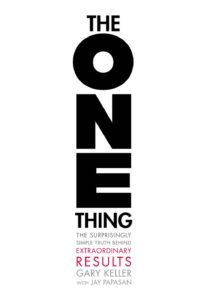
How can I apply it to people? But it’s been years. I have still not finished the book. Clearly, it’s something I’m procrastinating or I’m not prioritizing as a number one thing. I’m actually reading the book, The One Thing, and realizing I’m doing the exact opposite of that.
In this particular case, is the writing of the book a shiny object or is it not when it relates to the SEO, generally? Are you asking me what would be the best approach to get it done?
Let’s take this as an example. You’re saying, what makes the distractions and the stuff that is not going to move forward and make that harder to do and more painful to do, I’m guessing things like Facebook, should you delete it from your phone, that sort of stuff?
Your phone should probably be just put away for an hour or two in another room because there’s a cognitive report even when it’s just close enough by, or at least has been shown. I have ADD and one of the things that I’ve always done to stay focused is to break up my projects into lots of different pieces. Even add some pieces that sound exciting to me, but I won’t get to if there’s not enough time.
So, I jump from project to project, but I jump from project to project within the bigger project. I satisfy my need to jump around, but I’m jumping around in a project. My steps of a project are not broken out like maybe a lot of people. I’m breaking them up into different types of activities so that when I get bored of one thing and I feel the need to do something else, I can still be working on the same project in the meta-level.
Got it. That makes a lot of sense.
That’s a good example of what I was talking about that, “Okay, I have ADD, I do jump around. Let’s just now take that as given. How do I succeed with that tendency as opposed to trying to fight against it?” That’s really what I see so many entrepreneurs make a mistake of doing. Most people in general, make a mistake of doing.
Most of my client work is either in marketing or entrepreneurship. I focus on those two things. I spend a lot more time talking about that topic to those people, but I would say that my experience is that most people are guilty of it because we’re taught in school that there’s just the right way to do things and if you don’t do it that way, you’re doing it the wrong way. The right way is whatever works for you, in my opinion.
You’ve come up with some really innovative ways of processing information and distilling information. Years ago, I discovered your video of your speed reading technique and how you cut the binder off of the book that you’re reading. First, you highlight it as you’re speed reading it and then your assistant cuts the binding off and then pulls all the pages out that have any highlighting on it. Why don’t you quickly walk us through what this process is because it’s really cool?
I’ll give you the old version then I’ll give you the new version. The old version was, I would read hardcover books, I would highlight, I would tend to over highlight because I had this experience years ago where I used the cheap highlighter and I walk into my library to grab a book that I’d already read. I was looking for something specific and I knew where it was.
When I pulled the book out, all the highlights had faded and I would freak out because I’d been reading and highlighting for years. I later found out that that was a cheap highlighter, but nonetheless I freaked out and thought that that could happen to all my highlights. I didn’t want that to happen anymore.
Instead, when I read a book, I would over highlight it with the idea that it had an important sentence and a paragraph, but I needed to understand the paragraph to understand the sentence. I would highlight the paragraph because my intention was, I’d never see that book again. I’d tried over highlight it, cutting away all the fat of the book and then I would bring it into the office and they would use a guillotine.
We had this book guillotine and we’d drop the binding off the book and then they would scan it in. The scan would be sent to a virtual assistant in the Philippines who would cut and paste everything that I highlighted out and into a separate document. Then that would get turned into a Word Doc, a PDF, an EPUB, and also an audio file. That would then go back onto my computer, my iPad, what have you. I have a program on my iPad called QuickReader which taught me how to speed read and I could review my book now. I can reread those notes at about 2000 words a minute when I was working out and breathing in oxygen on my elliptical machine.

Since then, I’ve done a couple other things. I use another program called Voice Reader which actually, I generally use before I read a book. What the app does—it’s an app and Voice Dream is the name—is it reads to you, but also paces. The fastest it can go is about 700 words a minute, but it’s pacing. In other words, you’re seeing the word as it’s saying the word and the type being highlighted across the screen.
Generally, I can go through a 300-page bestseller book in about 1½–2 hours with Voice Dream. By then, I know the book then I will read it and highlight it. I usually do that in an app called QuickReader. From Quickreader, I export my notes and then it turns into a PDF, EPUB and all that, but it also goes into Evernote.
I took a course from a really smart, sharp guy named Tiago Forte.
Tiago Forte. I’ve had him on my other show, Get Yourself Optimized. Very cool.
He has a course called Build Your Second Brain, which I took. Now, I take those book notes that I highlighted and they go into Evernote and I do what Tiago recommends, which is progressive summarization.
I go through it once and I bold now the text for my highlights. Now, I’m bolding in there what I think is most important, then I’m looking at those bold another time later. I’m highlighting what’s most important of the bolds, and then consolidating that and then eventually I write about it.
That’s been what I do these days. I’d still read it on the elliptical and all that, but I get a lot more value out of actually putting it in Evernote and reviewing it by that progressive summarization that Tiago recommends. I got a lot of value out of that.
Very cool. That’s awesome.
Now, I’m curious, what would be an example of a book that’s fairly technical that you would have to do a different
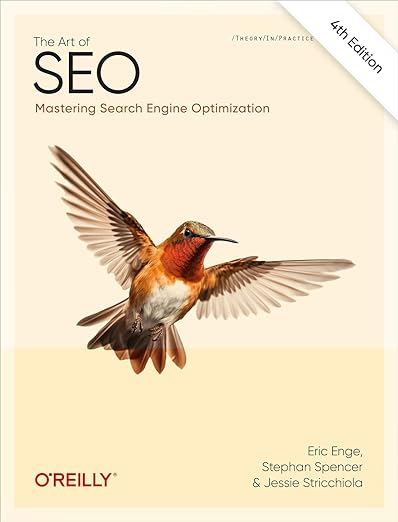
approach to, and what that approach might be. Maybe the book is my book, The Art of SEO because there’s a lot of technical nuances and stuff that if you really scan quickly over the book, it’s 994 pages. It’s not an easy read by any stretch. There’s a lot of technical details to it. You probably want to pull up the tools and actually follow along, run some of these reports and do some of these kinds of queries. How are you going to handle that?
The first time I’m going through it, when it’s being read to me by an app like Voice Dream, I’m not really going to worry that much about it. What I’m going to try and do is really just get a full understanding of the book.
Now, some books don’t make it past that. If there is no reason for me to store any of the knowledge that the book has, then I might just end right there. Or I might still actually read it, but I’m not going to highlight it.
I was thinking about this the other day because we’re in the car, meeting a few friends and something came up. I was recommending a book that I got a lot of enjoyment out of, but it wasn’t a business book, or a marketing book, or anything like that. The only thing I did was go through Voice Dream on that.
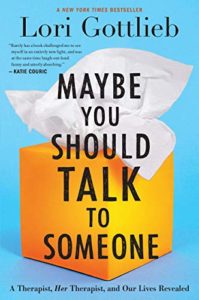
That was a book about my therapist who was going through a crisis and going to therapy at the same time. The book was called Maybe You Should Talk to Someone and it was just a really great true story of what’s it’s like to be a therapist and to be on the other side of the coach.
Some things I’ll stop there, but if it’s something that there is stuff to learn from, I won’t learn that until it’s probably in Evernote because I will highlight those things and then in Evernote, I will be looking at it in front of my computer. That’s when I’m sitting in front of my computer, actually interacting with anything that I have read, captured, and processed.
Okay, got it. What’s been the most valuable book you’ve read from a marketing standpoint in the last year or two?
There’s been a couple that have opened my eyes to opportunities as well as challenges. Let’s go to the negative side first, then I’ll go to the positive. On the negative side, I’d say the Move Fast and Break Things (whatever that book was), but the ones that are very anti-big tech were very eye-opening for me, quite so.
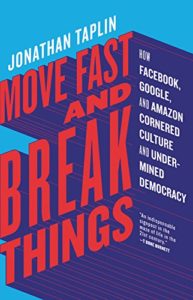
On the positive side, I would say that a book that I didn’t read until last year even though it sat on my bookshelf for three years was The Rise of the Platform Marketer. I thought that was a really good book. In addition to that, Don’t Be Evil was also really good.
I read this one that I really think everyone should read and that’s Data-Driven by Tom Chavez, Chris O’Hara, and Vivek Vaidya. Data-Driven: Harnessing Data and AI to Reinvent Customer Engagement. Those of the people that first developed segmenting on websites, they actually were the ones that went to the Wall Street Journal and were like, “Hey, when someone went to your site at [9:00] on a Monday morning with a Blackberry, we can sell advertising for more money.”
They did the segmenting for most of the big publishers back then and they since sold their company to Salesforce, I believe. It’s all about identity-based marketing. I would say that in addition to this book, called IoT Inc. The Internet of Things was also an eye-opener as far as all the possibilities for innovation and therefore new businesses certainly were very interesting to me.

Probably the book I read last year that was the easiest to apply to marketing would be Oren Klaff’s book. I don’t remember the name of the book that he wrote this past year, I’m just going to look it up. But that was very good since a lot of my marketing deals with changing people’s beliefs. Flip the Script, that was the name of that one.
I just heard him speak last week at a METal event here in LA. He’s awesome. He swears like a truck driver, but it’s fun.
I thought that was a really good book and very easy to leverage as far as very simple strategy, weighed out the steps. My experience is different than his, but he’s in the same neighborhood and I saw a lot of parallels. I was excited to see what he was bringing to the table that was different and effective too.
He’s got a really great process at these things called the Flash Roll. Really, really good stuff. Definitely listeners, go check out that book. All these books sound fabulous. Now, are there any particular masterminds that you highly recommend? I was just at Abundance 360. We were definitely talking about the Internet of Things and AI. Apparently going to be two kinds of businesses at the end of this decade. I forgot who is attributed to this quote, but, “The two kinds of businesses are those who are using AI in their business and those who are out of business.”
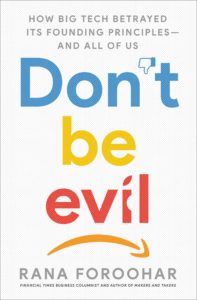
That’s certainly true. The thing is that most small businesses don’t have anywhere near the data that they’ll need to power AI. AI, that’s not using your own data is second rate at best because it’s not targeted to your audience, your specific offers to your specifics. That’s going to be a problem.
There will be a big come up with that smallest business that doesn’t capture enough of their data. They’ve even outsourced a lot of that data to the big tech platforms and if they ever lose their account, they lose all that data. There’s a lot of challenges with that because I would say that I agree with what your statement is and the overwhelming majority of small businesses couldn’t be further away from being able to leverage AI if they tried.
Which is a real missed opportunity and very dangerous for their long-term livelihood. What are you doing in the realm of AI or just software as a service or anything that is innovative for your marketing? Because you’re at the top of your field with regards to marketing. Let’s hear about some of those.
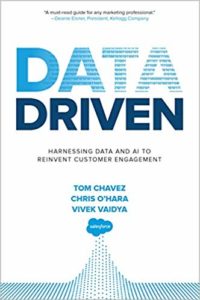
I spend a lot of time looking at identity graphs, which are basically a graph that has everyone in the US as a row and then every column is a piece of data about that person. Whether it’s cookies on their browsers, device IDs, email addresses, physical address, phone numbers, etc.
Now, I don’t know what is going to happen to that industry, but with Google’s announcement about Chrome and getting rid of cookies. The reason why Facebook, Google, and Amazon and those companies don’t really care because they have their own identity graphs and a platform that people log into for every single device. They already know who everyone is and they want to keep that data to themselves in this new age of AI.
There’s not a lot of technology that I felt very bullish on identity-based marketing because that’s how you do on the channel. I would say that I don’t have any specific technology recommendations at the moment. I would say the reason why is because I see that there’s really not a lot of innovation and I’m highly concerned about big tech. I think until something’s done about big tech, the prospects for small business are not great.
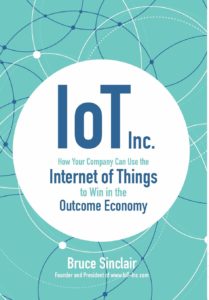
When you’re saying big tech, you’re saying that Facebook, Google, and so forth were overly reliant on them and they’re calling the shots and we’re not holding the data, we’re not the ones utilizing the power of that data, it’s our robot overlords or soon to be.
It certainly seems to be moving in that direction. The cost per acquisition has only gone up. It goes up every year. It’s gone up in years of recession and it will continue to go up. There’s no reason to think that it’s going to go down. The ability to get organic traffic consistently gets taken away by these big tech platforms.
We were talking before, we got started today about Google. The inherent agreement about a search engine was we’re going to crawl the whole Internet, we’re going to take that content, make listings, and then people come to our site to then find your site. That was what search engines were about. If you’re going to just crawl everyone’s stuff and then trying to keep people on your site, then what’s the benefit of having everyone’s stuff for those people who stopped your scraping. Since Google is now sending less than 50% of the people that come to their site to external sites, that’s something significant.
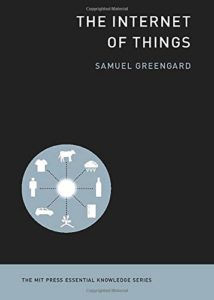
It isn’t anything new. Facebook did this being switched, pull out the rag for brands years ago, they had everybody from McDonald’s to Mercedes saying, “Like us on Facebook.” Sending all their customers to Facebook, and then one day Facebook is like, “Well, thank you for sending all your customers, but now if you want to talk to them, it’s no longer going to be free. You’re going to have to pay for that.”
This isn’t new, but the thing is, is that these companies are maturing. When they mature, it’s all about maximizing income. The easiest way for any of these platforms to maximize income is to make sure nobody leaves unless those people pay to leave and that price consistently goes up.
Amazon Prime now has 95 million members. That’s ⅔ of American households. It’s more than who’ll vote in the next election. I’m just as guilty of it like everyone else. If there’s something I want to buy, I go to Amazon first.
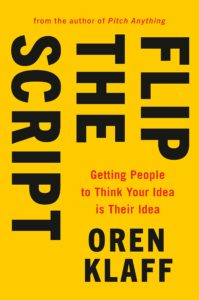
Antitrust Law changed in the 70s to only be useful if a company is hurting consumers by charging them more. All of these companies are not. They are not charging customers at all. However, they will at some point. Their price has even baked into their share prices. Amazon trades at 47 times earnings. The reason it trades at 47 times earnings is because most investors believe there will be a day where it won’t lose money on every purchase, it would make a lot of money on every purchase because all the other businesses out there will be out of business.
On top of that, go on and on about how bad these companies are, like they pay enough taxes, they have the second biggest funder of lobbying, they’ve broken a lot of laws, and they have gotten caught, everything from Google buying all the mass card data to an agreement between Google and Apple not to hire competitively from each other to you name it.
These companies had broken the laws. That’s why right now, there are 50 different state attorney generals that are all suing them all independently. It’s bad news. I think that people should probably be more concerned about it than they should.
There are a lot of strategies that can be added to a business today to make it less dependent on big tech and also more profitable. Those are the kinds of strategies that will be going over in the live stream. A lot of that has to do with partnering more, about getting closer to your customers, using all channels so that you’re less reliant and then using alternatives like advertising on Reddit or being on Quora. Just really not being totally reliant on any one or two platforms.
Diversity is part of the solution in any industry. If you are diverse enough on your mission and vision, say goodbye to longevity. Share on XThat makes a lot of sense. A great example of this disregard for small business owners is what Google rolled out in the last week from when we’re recording, and that is that they’ve taken away a page one ranking for those web pages that are ranking in position zero as a featured snippet. This idea of don’t be evil is…
Not only they’re going to steal your content.
Right, exactly. Let’s just scrape your content, make it the answer that’s read on a Google Home device or Google Assistant, let’s remove the regular organic listing that you have, and demote you to page two. The old adage or the joke that, “Best place to hide a dead body is page two in Google.” You’re just invisible.
Now, some SEOs are thinking, “If I’m not position one, the clickthrough rate is typically higher for position one than position zero, maybe I should deoptimize my featured snippets so that I don’t show up anymore for featured snippet, because I’m at position one and I want to be back at position one. Now, I’ve been demoted to page two.” This is not benefitting anybody but Google.
Right. That’s all that Google cares about. It’s not going to get any better. That’s just the bottom line.
Diversify is part of the solution here. Have strategies that don’t rely so much on big tech, is another one. What would be a specific thing that people can do even if they’re not advertising anywhere? They’re just relying on SEO and free traffic channels. What could they do?
Generally, most of the people I speak to don’t do that. I’ll have less to say here, but what I would say is, one of the things that always work extremely well for me that I wrote about in the Attention Age Doctrine 2 was (because I wrote these doctrines in 2007–2008) about attention becoming the scarcest commodity online. That was one.
Number two, I was talking about how I believed that most people’s attention would go to social media and what the implications of that were. One of the implications that I talked a lot about that I try to always follow was to recognize that prospects are no longer just targets, but they’re actually the best possible channel.

A lot of people think word of mouth, but when they think of that, they’re only thinking about their customers. You have a lot fewer customers than you do prospects. Part of the reason I always wrote these dense reports and made a big deal about their release was that the pass-along I got from prospect-to-prospect in those reports really grew my market and grew based on my business without advertising or anything else.
I think a strategy that really enables prospects to share your stuff, then it fosters a conversation about what is it that makes people want to share something, but that that would be a very useful focus for any small business, especially small businesses that are not advertising but has a list of prospects or a certain amount of traffic that’s organic to their site. They really should be looking at those people that are visiting and the prospects they have as a possible unit of contingent, that can pick up their message and then infect the world with.
My experience is to try to give people counter-intuitive content that actually equated to some social currency. What I mean by counter-intuitive is advice that is not the norm, advice that is unusual for the outcome. When my reader shared it was someone else and made them more interesting, intelligent, or knowledgeable about something important. That’s always worked extremely well for me. It’s one of the reasons why a lot of my reports went viral.
What would be an example of that being counterintuitive and making the person who’s sharing that look smarter, more magnanimous?
I’ll give a specific, but I’ll give you the general first. Anytime we tell someone a joke if they remember that joke then tell it to someone else and they tell it well, they appear funnier than you gave it to them. Generally, people don’t really ask where did you hear that joke, but generally, when you’re giving information, it’s more likely—not always—always going to be like, “Oh, where did you hear that?”
One of the counterintuitive pieces of advice from my report, I talk about the best way to radically alter your productivity and be a lot more effective, is to radically cut your hours. I’ve had a lot of entrepreneurs that its clients have spent way too much time on the office because of that, they acted with no urgency. You could say that maybe they were 20% effective at the office. If they spent 10 hours, they got two hours of really solid work.
With clients like that, my recommendation was to always cut their work hours way down. Down to three hours. The first day, they get nothing done, the second day they get a little bit done, the third day, a little bit more. But at some point, what happens is they start making different decisions. Their employees talk to them for 5 or 10 minutes and they’re too behind to even say yes. They say, “No, I don’t have time today,” and they start making different decisions.
That’s what’s needed. You don’t go from being 20% efficient to 90% efficient. That just doesn’t happen because you really have to make a totally different decision. The best way to actually get a lot more productive and then stay that way is to gradually cut down your hours until you actually start making different decisions. Then, like a weight loss program and maintenance, you slowly add more hours back on as you can maintain that ratio.
That would be something counterintuitive. Most people would have never heard of a strategy like that, and that would be something interesting. In that particular case, it might only be interesting if you’re talking to someone else who’s saying how unproductive they are. So it’s not the best example.
Many claim that customers are the best assets. Prospects actually are the most significant assets. They are always a larger pool of people. Share on XThat’s a great example. I love that. As somebody who was a 5000-item to-do list, I think I need something like that. Because I just work way too many hours. I try to do too many things and that’ll force me to operate differently. They say that a person who’s running a $100,000 business doesn’t have the skills to run a $1 million business, and the person who’s running a $1 million business doesn’t have the skills to run a $10 million business.
There’s a lot of truth to that.
You’re going to have to upskill a lot and change your behavior and your decision-making, really up level, or replace yourself with somebody better.
I want to circle back to a question that I started to ask you, but then I didn’t give you enough time to answer. That was a mastermind. You give some great examples of books that are enlightening and game-changing. What about masterminds?
I’ve always gone back and forth on masterminds. I see their value, but as someone with ADD, I’ve always had too many ideas. I had my own mastermind program. I did that for a year-and-a-half where I did the opposite. My goal was you bring all your ideas to mastermind and you weave with the one idea that actually is worthy of you doing.
I did it with me and the three mentors that I probably made the most difference in my business life were Jay Abraham, Mark Ford, and Clayton Makepeace. There were four meetings over the course of year one. One was just me, and then one was with me and that person, and me and that person.
Masterminds have never been my big thing because I think I don’t need to get a lot more ideas, I just need to focus more. Personally, I have enough time. I do spend time talking to a lot of people, and asking their opinions, and getting their ideas, and asking what is working for them. I also really enjoy being around a lot of sharper people.
I like all the component pieces of it, I just don’t like it all focused on a few days. I like it more spread out too much in one thing. But I’m a fan of it, nonetheless. Just it hasn’t been for me. I’ve gotten a lot more value out of one-on-one phone calls with a lot of my peers, asking their opinion on a campaign I’m doing, how they would make it better, those kinds of things than ever of a big group of people.
Got it. You mentioned Jay Abraham. I’m a big fan as well. I just saw him the other day, in fact. He’s been on the show three different times. That’s pretty awesome. One of the times, he interviewed me about SEO which is really cool.
Very cool. I’ve known Jay for 20 years. I think I’m one of the longest-standing business relationships he’s had and friendship. I’ve learned so much from him over the years.
Very cool. There is also Clayton Makepeace that you mentioned. For those who are not familiar with him, what’s Clayton about and what has he done to transform your business and you personally?
Clayton helped me a lot with writing and also some understanding of the direct response. Clayton’s one of the AAA copywriters of the world. He wrote the very first successful promotion for a natural health supplement type product. This is back pre Internet, it was Phillip’s Publishing. It was Dr. Whitaker. That magalog, he wrote the magalog. I think they sent out 19 million copies of that magalog and Clayton got, as a top copywriter, a nickel per magalog. That was like a $4.5 million sales letter in royalties. Clayton is one of the top copywriters out there that has written for the big direct companies.
He wrote this one book called Two Hours To More Profitable Sales Copy. It was a short book, maybe 200 pages. But they were shown how a business should be run from the marketing department and as a marketer, I see some logic in that. I got a lot of value out of that.
And then even little things, lots of little things. One of those little things that I learned from Clayton is adding an S to verbs in headlines so that it takes the ownness of work off the prospect and puts it on to the device. Boost Your Income versus Boosts Your Income. Achieve Your Dream, Achieves Your Dream. The S automatically takes the effort off of the person and puts it onto the device. That’s not a very, “Oh my God.”
That’s thoughtful. I love that. That’s great. Then you also mentioned Mark Ford?
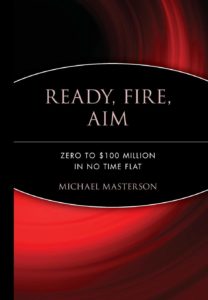
Yeah, Mark Ford. Who also has a pen name Michael Masterson. People know him in different ways. But he wrote the book Ready, Fire, Aim. A lot of people are a big fan of that book. He thanks me at the front because the seminar that that book was based on, he called me when they sold the seminar because I’ve been teaching business for a long time.
He’s like, “What should I teach?” I told him, “What I’d most like to learn from you are the different stages because I seem to have all my businesses really stop at being successful in stage one, but never get really any of the success’s stages. I’d be interested to learn about that.” That’s what he wrote about. I’d learn about business acquisition and everything.
I would say, I learn marketing from Jay and Clayton and I learned business growth from Mark.
Got it. And you’ve grown your businesses quite substantially. I know in your longer bio you’ve motioned, for example, a clothing business that you helped grow significantly. What was the story behind that one?
That was a family business. I was in college in my first year and my dad was going to close the store that he owned. It was never a big part of his business, but it was losing money. At least what would run out in six months. The break-even on that store is about $3 million and it was doing about $1.5 million. It was losing money and he was looking forward to getting out from under it.
I made him a deal where I said, “I’ll drop out of school. Give me the store. Give me six months to turn it around. If I get it to breakeven or better within those six months, renew the lease. We’ll be 50-50 partners on it and I’ll pay you back any money you lost from the day I took it over. If not, then just close it.” He agreed and I did, I turned it around and made it a really successful store. It was one of the most popular stores in Manhattan for a while. That ruined to a music label as well. A recording studio that was right in the middle of the store that we built. It was a good time.
You had Prince and Uma Thurman as customers.
Yeah. But most celebrities shop there. Madonna, Drew Barrymore, you name a celebrity, they probably shopped there. Not that I’m close friends with any of them or anything.
But it’s great social proof. And then you had a hypnosis center.
I did. I got hypnotized and I’m highly hypnotizable. I had a profound experience and then wanted to know more, learn more, and study more. Eventually, I decided to make a business out of it. It did really well and it grew really fast, until 9/11 because of all the hypnosis centers were in Manhattan. Then we had some major setbacks. I’d say that I accelerated those setbacks because I hadn’t had yet a humbling new experience in business. I had only had successes. Maybe to realize that there are some things you can’t turn around. I had that lesson there.
But it was an eight-figure business for a while.
It grew into a $13.5 million business in 4 years. That’s where I learned direct response. I left the hypnosis business with two things. A desire not to have very many employees because I had over a hundred with diagnosis centers (over 60 full-time hypnotists), and a desire to do direct response. Very few employees or no employees, I knew how to direct response; the Internet seems like the place to go.
You have quite a storied life. And then you did these free reports. What was the most effective marketing strategy for getting those free reports out there? So many different ways that are probably outside of just the general top processes of our listeners. You could have those getting pirated on Torrent sites, you could upload it to Scribd. Back in the day, there’s something doc. Anyway, they sold and then it closed down. Anyway, Scribd is an example. What was super effective for getting your free reports highly disseminated out there?
I would say actually, there’s certainly were some marketing tactics. The first report I wrote, which is why I wrote all the other ones, I had just finished coaching a coaching group. I had this project with Agora that was coming up in three months. I had these 3 months window, I was just hoping to get 10 or 12 clients from this report. I ended up getting a lot more than that and the report went viral. But that first report had the least amount of promotion. It’s by 2008, we had already had over a million downloads, by 2012, I think we had over 2 million. I don’t think we’ve counted ever since. That wasn’t a tactical thing.
When we’re recording this, two weeks ago, there was a UFC fight between McGregor and Cowboy Cerrone. Cowboy Cerrone is known not to fly in the high-pressure fights. Because of that, they were interviewing him about what he goes through right before he gets in the cage. He gave a 30-minute interview about the anxiety he feels as it’s getting closer and how when it’s time to warm up, he feels like his hands are heavy and his legs are heavy. He can’t understand why they’re heavy and moving so slow, and the fight’s about to happen. He went into all those details that generally fighters don’t go through in detail about.
Then they flashed to the desk. At the desk was one announcer and two former fighters and they were both were like, “Oh my God, I can’t believe that he goes through that. I go through that, too.” So did the other one and they never shared that.
I teach a lot of my clients this, especially when it comes to marketing stuff, that which is most personal is most general. It’s a famous quote that I don’t know whenever I’ve researched it that I’ve found that attributed to too many people so I don’t know who really said it.
Most of us walk around thinking the same thoughts as everyone else and also do not share those thoughts because of what we think it says about us. A lot of my reports target a lot of those kinds of thoughts and let people know that they’re not alone and in addition, seeing their situation a little bit differently and I think that is part of it. I would say that what’s behind that is—I’ve always felt this way and I just read something recently that confirmed it to me—most people don’t make enough time to do anything great.
For me, I had a few specific pieces of content that made all the difference for me in business, in my life, and in my wealth. Each of those times, I spent quite a bit of time on those pieces. It’s also is not who I am, so it’s convenient for me to say it, but I’ve never been one to want to do something daily for the sake of doing it daily. I think a lot of people feel that they need to and they do mediocrity on a daily basis. Maybe if they would work on the same thing for some period of time, it would be a lot better and be worthy of standing out.
Digital marketing is evolving faster than ever. Those out in front get more customers at lower acquisition costs than their competitors. Share on XAt the end of the day, writing something that is worthy of sharing is not easy to do, but it really makes any sharing strategy work 100 times more effectively because you’ve gotten over the first and most critical hump which is, “Should I even be sharing this? Why am I sharing this?” I would say that the strategies change from, tactically, all the time but I would say that more of my success came from what was inside the reports than any magical thing that I did outside the report. We did tell-a-friend stuff and those kinds of things. They did okay, but I would say that the bigger thing was the content.
To summarize what really made that content profound, so valuable, and made you so relatable was how personal you got and how you focused on the reader’s transformation rather than conveying information. Is that accurate?
Sure. I would say so. Also, my goal was to give people an epiphany about their situation and to try and sell them on a perspective that I had that they did not have. If they saw things the way I saw them, then they would also see why I built the products I built because they were not the products that they were working for. That seemed to work well.
Awesome. If you can share the link to some of those.
Definitely. I would say they’re also relevant, obviously for different reasons and maybe when I wrote them. There were seven or eight of them in total.

Awesome. If there is one parting bit wisdom that you’d want to share with our listeners and something that you haven’t already addressed, what would that be?
Well actually, I have something. It’s actually an answer to your question and it’s also very self-serving, so hopefully, that’s okay.
Perfect.
I would say that business online increasingly gets more difficult that one of the things that every business, entrepreneur, and marketer should really not be an island and should look to partner with others in as many different ways as possible. If you can’t get over the hump when it comes to lead gen as far as the cost, maybe you can partner with another business and split the cost. If customer value is not high enough for acquisition, maybe you can figure out some promotion strategies on the backside to get your customer value up.
It’s insane that all of us are spending a lot of money with these big tech platforms as opposed to maybe spending a little less with the platforms and then transferring the assets that we’re paying for from those tech platforms to other businesses to help subsidize our costs as well as improving our profits and help other businesses as well. I would say think about partnering more would be the big takeaway. Be overarching.
Awesome. This is all great stuff. I really appreciate you sharing all your experience, wisdom, and everything. Even the misfires with my audience, that’s really valuable stuff. Where should people go to follow you, read you, contact you?
We’re in the process of updating my website because it was dormant for a bunch of years before I started banging the drum again but they can go there. Hopefully, by the time they listen, it’ll be fully updated but if not, it’ll only be a week or two away. That is strategicprofits.com.
Perfect. Thank you, Rich, and thank you, listeners. Do something with this information. Transform, make your business better, and get some light out there in the world for your prospects and customers. We’ll catch you on the next episode of Marketing Speak. I’m your host, Stephan Spencer, signing off
Important Links
- Rich Schefren
- Twitter – Rich Schefren
- Facebook – Rich Schefren
- LinkedIn – Rich Schefren
- Rich Schefren’s Free Reports
- Strategic Profits
- Youtube – Strategic Profits
- A Peek Into My Reading Process – Rich Schefren
- Attention Age Doctrine 2
- The One Thing
- The Art of SEO
- Maybe You Should Talk to Someone
- Move Fast and Break Things
- The Rise of the Platform Marketer
- Don’t Be Evil
- Data-Driven
- IoT Inc
- The Internet of Things
- Flip the Script
- Ready, Fire, Aim
- Jay Abraham – MS episode 8
- Jay Abraham – MS episode 62
- Jay Abraham – MS episode 207
- Tiago Forte – GYO previous episode
- Get Yourself Optimized
- Scribd
- Listings that earn featured snippets will not repeat on the first page of Google search
- Google to ‘phase out’ third-party cookies in Chrome, but not for two years
- Liveramp
- Agora Publishing
- Mark Ford
- Jay Abraham
- Clayton Makepeace
- Russell Brunson
- Ryan Deiss
- Neil Patel
- Todd Herman
- Todd Brown
- Ryan Levesque
- Frank Kern
- Andy Jenkins
- Mike Filsaime
- WebinarJam
- The Verge
- Scamworld
- Salty Droid
- QuickReader
- Voice Dream
- Evernote
- Tiago Forte
- Build Your Second Brain
- Salesforce
- Oren Klaff
- Abundance 360
- Amazon Prime
- Quora
- Phillip’s Publishing
- Dr. Whitaker
- Michael Masterson
- Cowboy Cerrone
Your Checklist of Actions to Take










About Rich Schefren
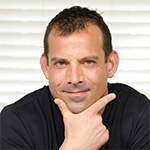 Rich Schefren, Founder and President of Strategic Profits, is the “guru to the gurus” has personally added over 15 Billion dollars of additional revenue to his clients over the course of many years. He’s been featured on media outlets like The Wall Street Journal, Newsweek, ABC, NBC, FOX, MSNBC, The Discovery Channel, The Daily News, The New York Post, and many others.
Rich Schefren, Founder and President of Strategic Profits, is the “guru to the gurus” has personally added over 15 Billion dollars of additional revenue to his clients over the course of many years. He’s been featured on media outlets like The Wall Street Journal, Newsweek, ABC, NBC, FOX, MSNBC, The Discovery Channel, The Daily News, The New York Post, and many others.







Leave a Reply